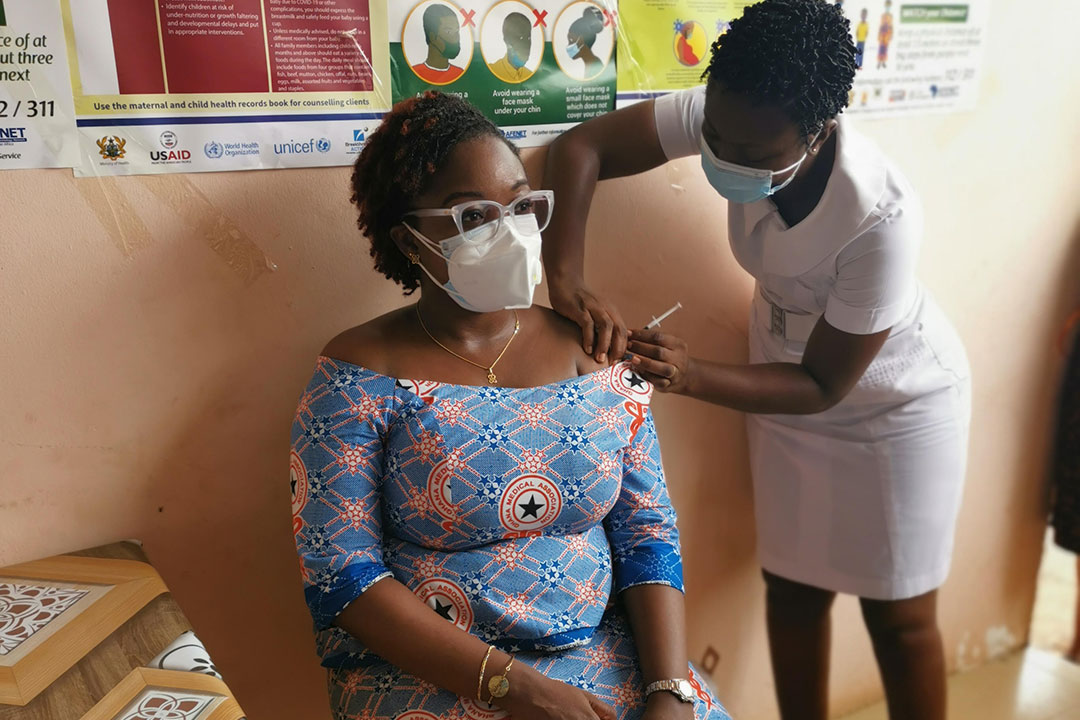Community voices boost vaccine messaging in Cape Coast, Ghana
Community leaders are taking it upon themselves to encourage people to get vaccinated.
- 5 April 2022
- 4 min read
- by Kwame Ofori Appiah
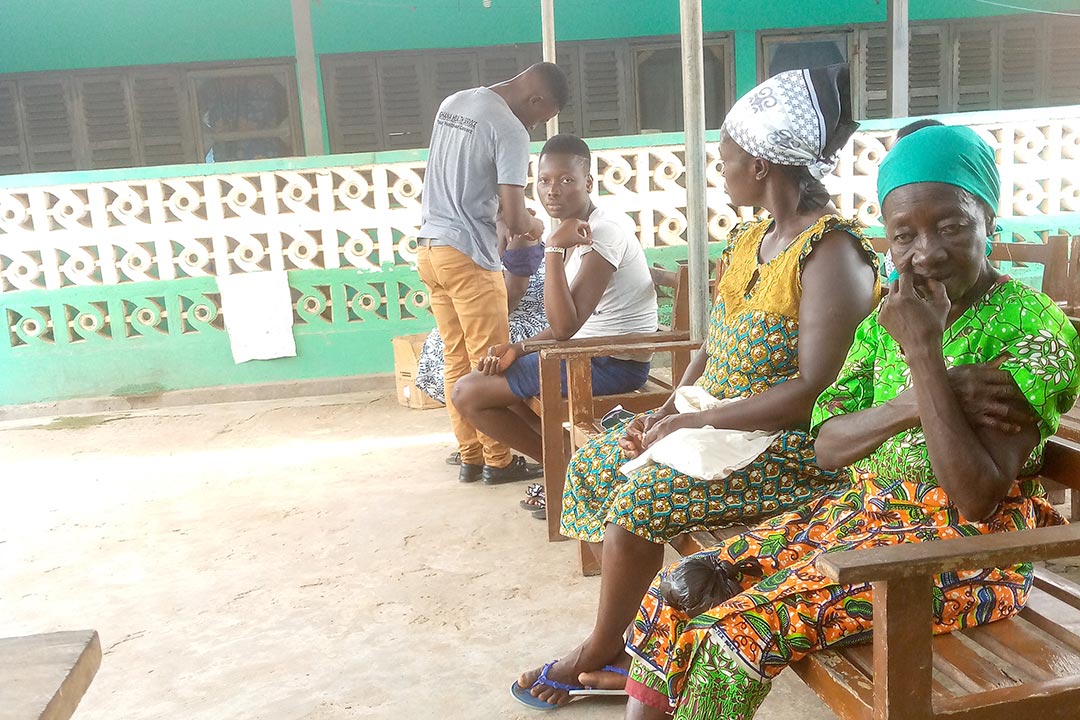
When the vaccines for COVID-19 arrived in Ghana, Anita Sackey, like many other eligible Ghanaians, was hesitant. Although keen to return to a “normal” existence, she was still undecided about the vaccine. That was until one Sunday, when her pastor, Charles Acquah Mensah of the Graceful Church International at Adisadel in Cape Coast, brought it up during morning service.
“Whenever I meet a group of young people, especially, I try to explain to them why it’s important for them to get vaccinated. I think it helps that they see me as one of them and this is a conversation with a peer, rather than a ‘big’ person coming to tell them what’s good for them.”
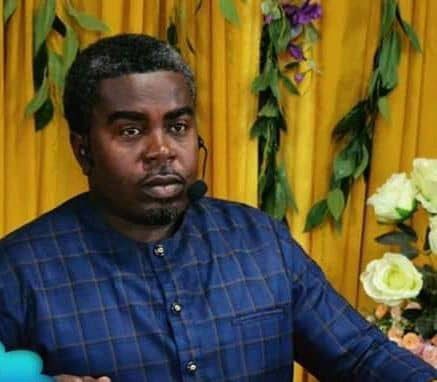
Credit: Grace Chapel International.
Pastor Mensah views the exhortation to vaccinate as an integral part of his duties to his church members.
“I told them it is the Christian thing to do to protect themselves against illness, especially one that can spread and kill other people that you come into contact with. As a community, we owe it to each other to get vaccinated so that others with whom we interact do not come to harm on our account.”
Pastor Acquah Mensah went a step further and arranged with the local health team to provide an opportunity for the members of his church to get the shots. Sackey and other congregants, encouraged by their pastor, took the chance and got their first jab. Now awaiting her second jab, she says, “I am glad that I did it. I feel more confident as I go about my work, knowing that I have a reduced chance of infection and illness.”
From her shoe shop near Kotokuraba, in Cape Coast, she says she also talks to customers who come into her shop about getting vaccinated because she believes that if “more of us get vaccinated, we can soon get back to how things were.”
While public health authorities have mounted vigorous education campaigns around the country, peer-to-peer interaction is also yielding positive results. Leticia Adu Poku, Disease Control Officer at the Adisadel Health Centre, says that the team has been pleasantly surprised by the uptake of vaccines in the communities they have jurisdiction over.
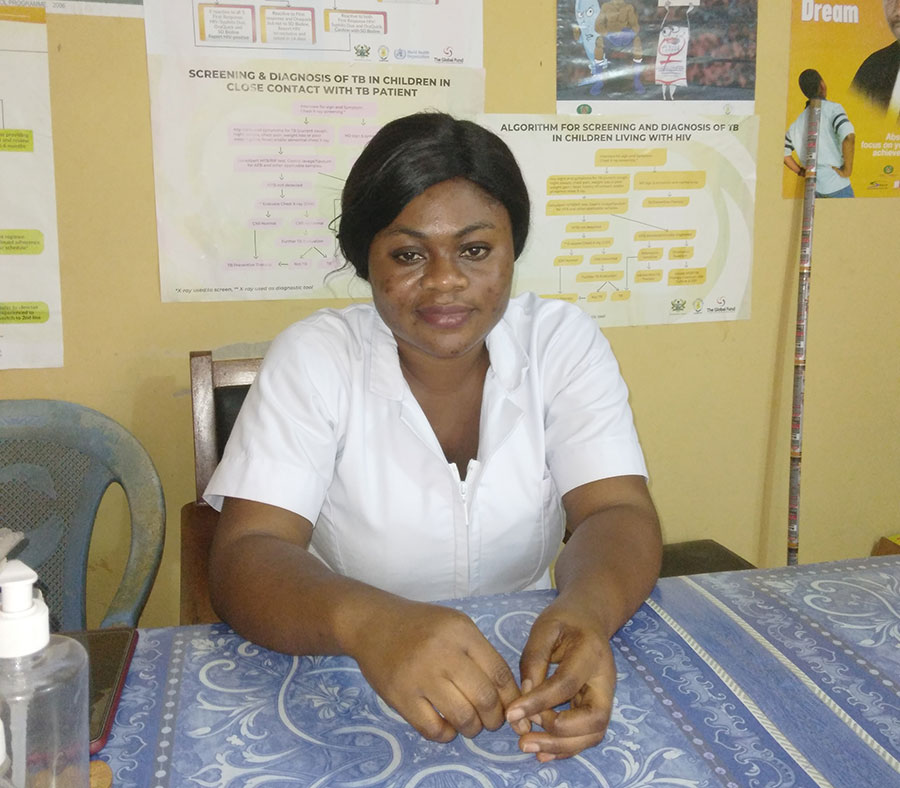
Credit: Kwame Appiah
She says the local health authorities have not formally contracted opinion leaders to spread the message, but they are finding more and more people coming in because they have been encouraged to by influential members of the community.
Have you read?
“Usually, we only speak to the assembly members to inform them when we are coming to conduct a vaccination exercise and, when we arrive, we discover that local leaders have mobilised people to come and take the shots,” she explains.
One of the communities where officials say there is still some hesitancy is Anafo, a fishing community near Cape Coast. Here, Nana Addae Mensah, a leader of one of the Asafo companies (a traditional military unit), has taken on the duty of educating and changing minds. Nana Addae’s day job is as an advocate for sexual education and tolerance, and he says that he is applying the same skills to COVID-19, albeit in a voluntary capacity.
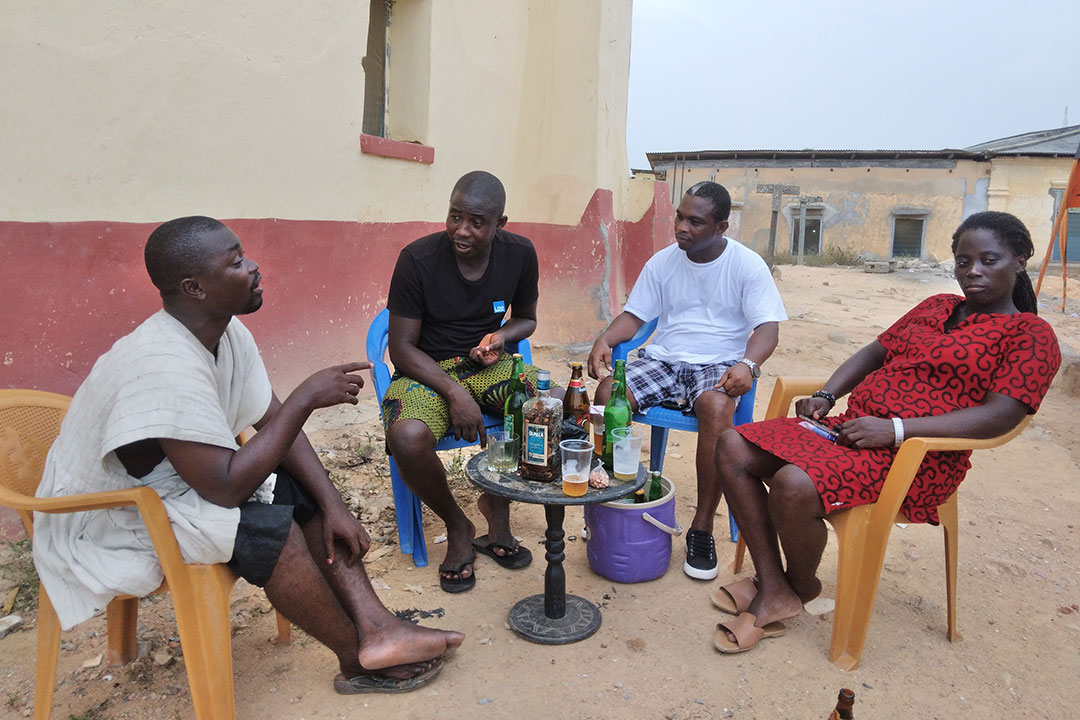
Credit: Kwame Appiah
“Whenever I meet a group of young people, especially, I try to explain to them why it’s important for them to get vaccinated. I think it helps that they see me as one of them and this is a conversation with a peer, rather than a ‘big’ person coming to tell them what’s good for them,” he adds.
Adu Poku agrees that this approach works. She says, “Although we are not officially working with them, we see the results and we are grateful for the efforts that people in the communities are making to boost vaccination rates”.
As the government prepares to relax its non-pharmaceutical interventions, vaccination is even more important to stave off another wave of infections. Public health officials are hoping that there are more volunteer vaccine ambassadors working even harder in the communities.
